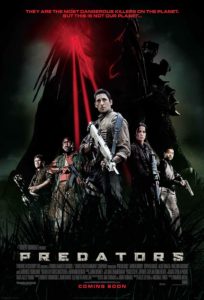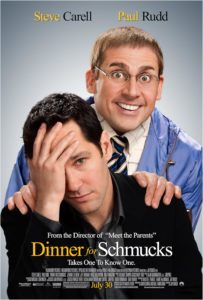 One of the things I liked the most about Predators (and make no mistake, there were very few things I didn’t like) is that it did not concern itself with reasons. Why are there skillfully violent people being dropped out of the clear blue sky? Who armed them to the teeth with things they know how to use? How did they even get here? That doesn’t matter, all that matters is, here they are. And they’ve got to find a way to survive against the deadliest hunters in the universe, all while learning to trust each other, work as a team, and somehow keep Eric from That 70s Show alive (as he is also here for some reason). Or they’ve got to die messily, one by one, with no hope of rescue or escape.
One of the things I liked the most about Predators (and make no mistake, there were very few things I didn’t like) is that it did not concern itself with reasons. Why are there skillfully violent people being dropped out of the clear blue sky? Who armed them to the teeth with things they know how to use? How did they even get here? That doesn’t matter, all that matters is, here they are. And they’ve got to find a way to survive against the deadliest hunters in the universe, all while learning to trust each other, work as a team, and somehow keep Eric from That 70s Show alive (as he is also here for some reason). Or they’ve got to die messily, one by one, with no hope of rescue or escape.
Which is another thing I like about the movie, it did not waste any more time on the premise than it did on reasons. Within five minutes, the movie is going all out and it doesn’t ever really stop. It’s possible that the original Schwarzenegger-driven Predator is the better movie, but only possible; I have seen no better movie that had a Predator in it, without a doubt. This is probably not the best sequel ever, but it is hard to imagine crafting a sequel to a movie that would fit the spirit of its originator any better than this one did.
